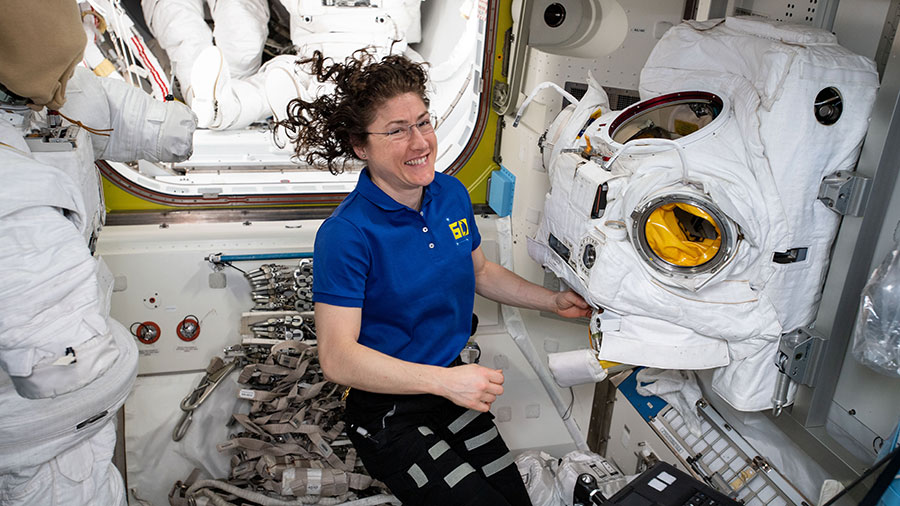
NASA astronaut Christina Koch has just set the record for the longest single spaceflight stay by a woman. Koch has been in space for 289 days, after arriving on the International Space Station (ISS) on March 14 this year. She has overtaken the previous record set by Peggy Whitson, a now-retired NASA astronaut who lived on the ISS for three periods between 2002 and 2017.
In her time on the ISS, Koch has participated in scientific experiments, taken delivery of research equipment, and performed repairs to the space station as part of the first all-female spacewalk.
Koch has spoken in the past about the importance of representing women in space exploration. When she was participating in the all-female spacewalk and was asked if it was important for her work to be recognized because of her gender, she said: “I think it’s important because of the historical nature of what we’re doing. There are a lot of people who derive motivation from inspiring stories from people that look like them, and I think it’s an important aspect of the story to tell.”
She has also supported other female astronauts, including welcoming her close friend and fellow NASA astronaut Jessica Meir to the ISS in September. Koch regularly describes the comings and goings and scientific research being performed on the ISS on her Twitter account, including shoutouts to her various fellow expedition members.
They all felt like Friendsgiving. Thankful this year for five different crews and the memories we had together on @Space_Station. #HappyThanksgiving pic.twitter.com/UvJvEd2Yzp
— Christina H Koch (@Astro_Christina) November 28, 2019
In an interview with CNN celebrating her latest record, Koch was asked what advice she had for young girls who wanted to follow in her footsteps and achieve their dreams. “Do what scares you,” she advised.
“Everyone should think about what intrigues them and what draws them in. Those things can kind of be scary a little bit, but they usually mean that you’re interested. And if it’s just outside what you think is attainable for you and you reach it, it really pays off dividends in more ways than one. It can be rewarding for you personally, and it usually means that you’re giving something back to the world in the maximum way possible.”



